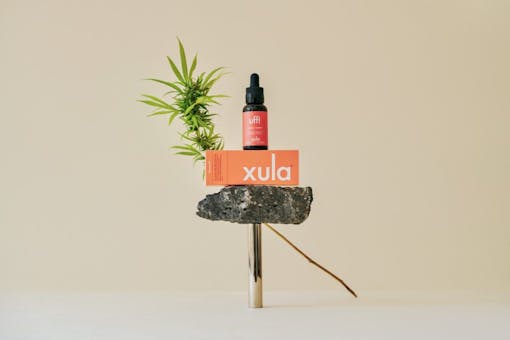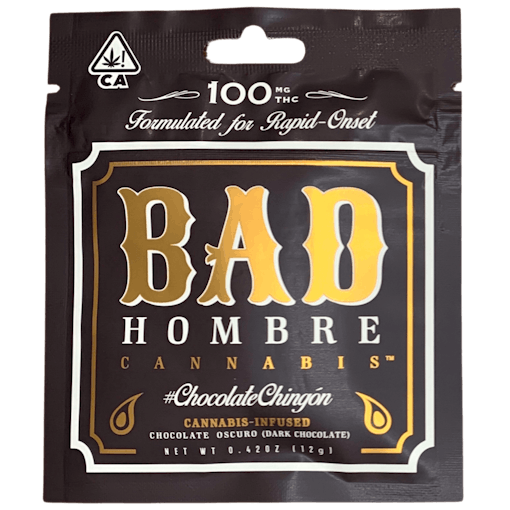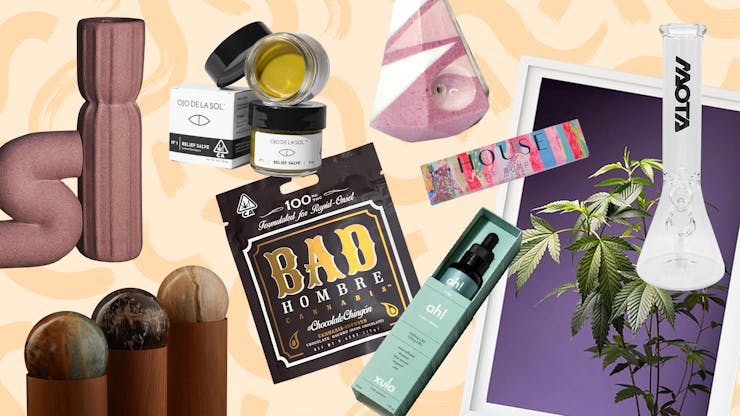The United States cannabis community owes a lot to Latin America and the Latinx community, which deals with its own unique and impactful consequences of the War on Drugs.
Despite the hardship that Latinxs have endured for decades, things are starting to change as the world opens up to cannabis, allowing resilient creatives and entrepreneurs to use a troubled past to fuel the future of the movement.
We’ve scoured the internet and called our amigxs to create this list of consciously crafted products and places with attractive branding and flawless design. From functional bongs to sexy smoke shops and high-fashion pieces, this list highlights some of the companies on our radar this year.
Xula Herbs

Xula Herbs’s name is a variation of ‘chula’, a word that roughly translates to ‘cool’, or as the founders put it ‘chill, intelligent, cute, balanced — to feel good in one’s own skin’. Xula is rooted in Mexico, the brainchild of Mennlay Golokeh Aggrey and Karina Primelles, two creatives with years of experience in the cannabis and wellness industries.
Their herbal tinctures are crafted using organically-grown hemp, specifically concocted to tackle PMS, menopause, menstrual cramps, as well as targeting stress and insomnia.
Although their branding is minimalist and modern, their preparations are all based on ancestral herbal knowledge, time-honored formulas, and knowledge that’s survived centuries.
Mota Glass

Walk into any smoke shop and you’ll find hundreds of glass bongs on the shelves. After carefully reviewing them, you’ll notice most look the same—this is most likely because the market is overwhelmed with mass-produced pieces that come from the same factories overseas.
Shop highly rated dispensaries near you
Showing you dispensaries nearBut not Mota Glass; this company prides itself on being 100% Made in America, working with independent glassblowers in Los Angeles.
“Supporting the local industry was very important to us”, said Susie Plascencia, the Mexican American entrepreneur behind Mota.
Catch this USC journalist delicately ripping her sturdy bongs online and highlighting Latinx culture on her colorful Instagram account @susieplascencia.
Kaná
It’s refreshing to see talent and creativity coming out of Venezuela, a country that gets constant bad rap in the media.
Thanks to the Maracay-based glassblower, Juan C Jiménez, the nation has a proud representative of its artisanship. Stemming from his main business (which focuses on making and repairing glass equipment for laboratories), Kana offers precision quality that maximizes the herb’s combustion, providing a smooth smoking experience.
Each of the pieces is handmade using German borosilicate glass (SCHOTT), which helps withstand high temperatures without ruining your session.
“Our accessories allow recreational consumers to enjoy a new experience, while patients can find new ways of adapting to their needs”, said Jiménez. “We support responsible consumption; it’s time to bring down pathetic taboos. We must work together to educate, inform, and normalize.”
Lelen Ruete
Walk around the coolest spots—especially those that are 420-friendly— in Montevideo and eventually you’ll bump into Lelen Ruete. The Argentine photographer might be an emigré, but she operates in the industry as if she were a born-and-bred local.
From the heart of the Uruguayan capital, Lelen runs The Rabbit Studio, a photography, branding, and creative office that’s also behind the Copa Canguro, the most important competition in the country (and one of the oldest in Latin America).
Her pictures of plants and surreal landscapes have appeared in different publications around the world (and exhibited in places like Kaya Center in Punta del Este), but are best admired when printed on one of her exclusive handkerchief lines.
Concepto Punto y Línea

Over the past few years, Mexico City has become a reference point for drug policy reform; the country’s Supreme Court has been debating cannabis legalization—with many ups-and-downs—setting the stage for a new industry to bloom. While politicians debate, local entrepreneurs have taken over the drawing boards; such is the case of Diego Mario Trinidad Perez, the designer behind Concepto Punto y Línea.
Using only locally sourced materials, his wiggly accessories are simple (inspired by Dieter Rams’ 10 principles of good design) yet striking and highly functional. The matte look of each stoneware piece is due to the high-temperature baking, while the glossy versions have a 20% glass mix that makes them shine.
Each purchase includes a vegan leather pouch to protect the pipes.
Follow Concepto Punto y Línea on IG
Estudio Tosca

And while we’re talking about Uruguay, why not mention the organic spice containers developed by Estudio Tosca?
Made from the wood of the Curupay—a tree that grows in the subtropical areas of Argentina, Uruguay, Brazil, and Paraguay—and topped with locally-sourced precious stones, these receptacles will keep your herb fresh for days.
Founded by Cecilia Casafúa and Alfonso Martínez, the duo highlights the quality of the raw materials found in Uruguay. “Our national precious stones—including agate, jasper, amethyst, and quartz—are some of the best available globally, considered to be of A quality,” they say. Why keep their top-tier ganja in a plastic container when you can have an organic one like these?
Chicks V Stigma

Since its foundation in 2018, Chicks V Stigma has become an icon of the city’s cannabis movement. More than a smoke shop, this is a space for the community to connect and find the latest in events and locally-made products, a testament to the advancement of new drug policies in Mexico.
Founder Brenda Hernández started this project after realizing that the lack of information and education was creating a false representation of cannabis, and that normalizing its consumption by highlighting top accessories was key to polishing the tainted image of stoners.
This included standing up against patriarchal standards in a macho-driven society, emphasizing the feminine spirit of the plant, approaching the conversation with inclusivity and love as their official slogan states: Bienvenida a nuestra comunidad amiga, hija, madre, esposa, aquí todas somos una y vamos de la mano.
Keep up with Chicks V Stigma on IG and make sure you follow their back-up to help them fight censorship and shadowbans.
Ojo De La Sol

Founder Dania Cabello launched Ojo De La Sol as a way to honor human connection to the outdoor world, as well as our conscious movement across the land, whether it’s on our yoga mat or trekking through the woods. Her cannabis-based salves and bath salts provide relief to people struggling with chronic pain—from high-performing athletes to bed-ridden seniors.
The final formula was achieved after a decade of studying cannabis and many trials and errors to relieve her own aches (Dania is a former professional athlete who tried western medicine practices to heal, with no solid results).
“This medicine is one of the strongest and cleanest in the cannabis industry, made with the intention to help bridge the divide between mind and body,” she says. “It is not the final stop on a healing journey, but a medium to ease physical discomfort to keep our bodies in motion.”
House of Puff
Elegant and chic, House of Puff takes on the art of one-hitters with portable pipes designed by artists and guided by Kristina Lopez Adduci, the Latin-rooted owner. Besides their own accessories, HoP collaborates with other companies to elevate the experience; their most recent partnership with Omura is a welcome transition into a more tech-driven lifestyle.
The simplicity of their pieces represent a slower kind of living; one connected to a wellness that gets a lot out of the minimal, finding beauty in the essence of things.
HoP’s rolling papers are a testament to this conscious appreciation of life—they burn slowly, and consistently—, and perfectly fit in the brand’s Crosby pouch, a delicate upgrade to the traditional stash box.
Bad Hombre

The idea of ‘loco weed’ turning Mexicans crazy was the foundation of racist propaganda that unfortunately still persists today. Latinxs are incarcerated for nonviolent cannabis-related offenses at a rate comparable to the Black community, four times higher than Whites, even if the consumption rates are somewhat similar. But this West-Coast based company is making sure to do things so right that their name stands out as comedic and sarcastic.
Bad Hombre sources non-GMO cacao beans grown sustainably (shade-grown, which helps protect the ecosystems of the land, cultivated in small family-run farms from across the globe), carefully crafted into chocolate infused with 100 mg of THC per package, the maximum content allowed in an edible in California.





